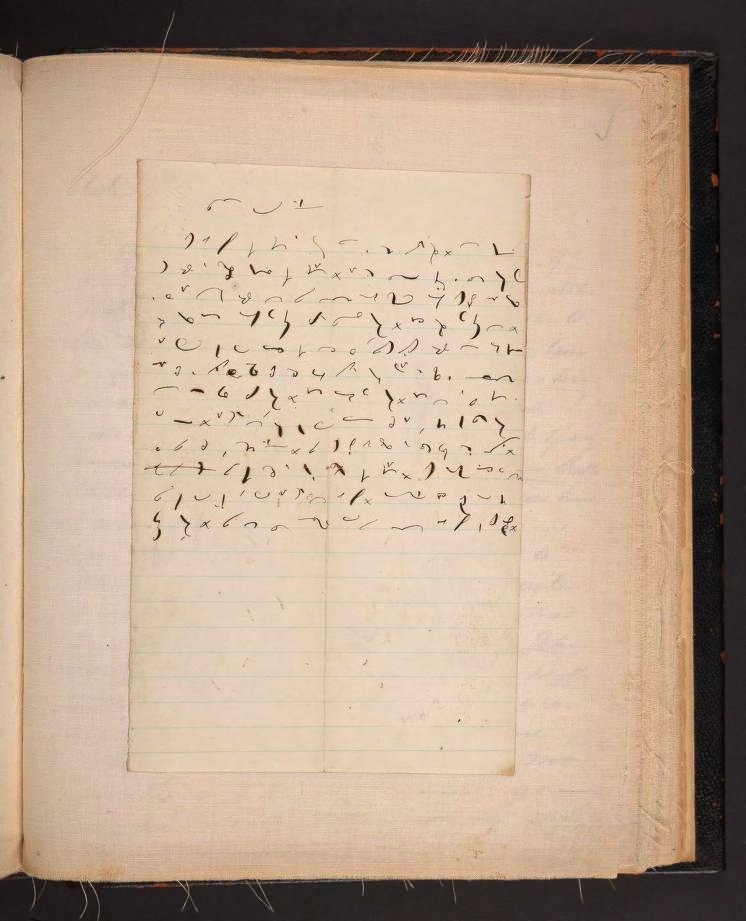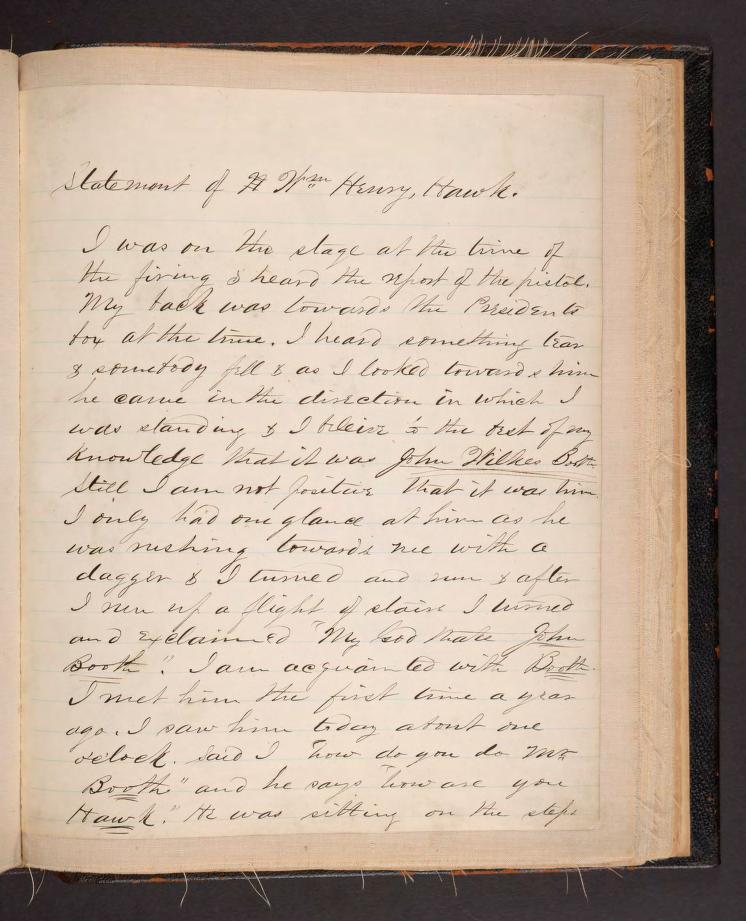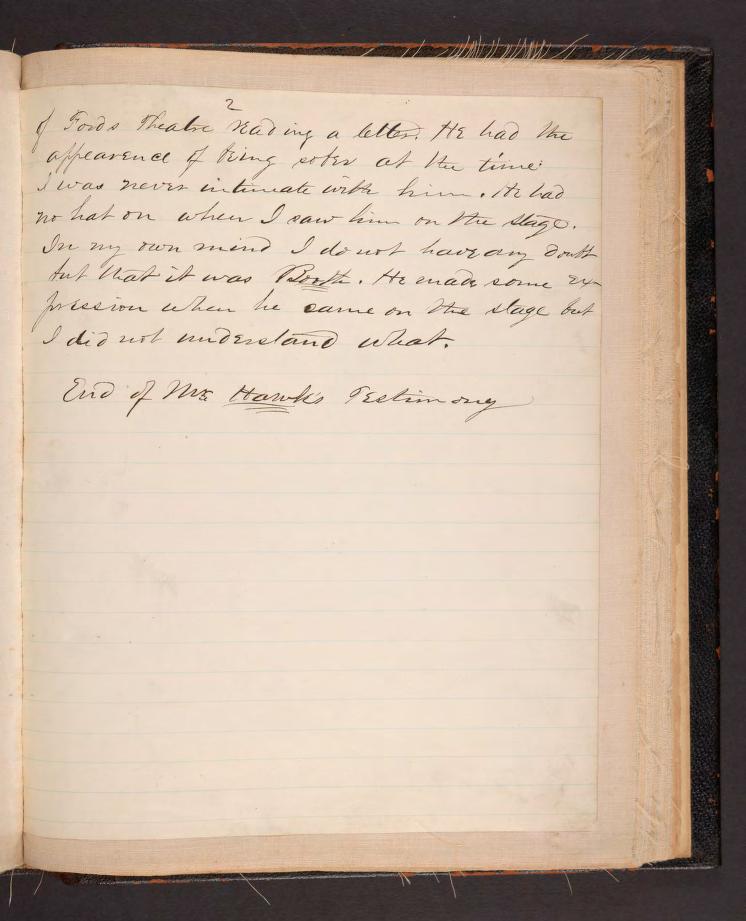A Book of Eyewitness Testimony Taken Right After the Lincoln Assassination
The Vault is Slate's history blog. Like us on Facebook, follow us on Twitter @slatevault, and find us on Tumblr. Find out more about what this space is all about here.
This unusual book of testimony from the Lincoln assassination is known as the Tanner Manuscript, and was assembled by Corporal James Tanner, a Civil War veteran and a clerk in the War Department. It holds the original shorthand notes Tanner took while hearing witnesses' testimonies on the night of the assassination, as well as the transcriptions he made after the fact.
Tanner, who lost both of his legs after the Second Battle of Bull Run (Second Manassas) in 1862, happened to be boarding near the Petersen House, where the mortally wounded Lincoln was carried for medical examination. He recorded testimonials from witnesses in the parlor of the Petersen House between midnight and 1:30 am, as Lincoln lay in the bedroom.
Tanner heard the testimony of a clerk who witnessed the failed assassin Lewis Powell leaving William Seward's house; a theatergoer who was sitting in the dress circle at Ford's Theatre and spotted an agitated John Wilkes Booth before the assassin entered the President's box ("I thought at first that he was intoxicated"); a second theatergoer who was watching the President's box with an opera glass during the assassination; and the stage manager at Ford's Theatre. Below is the statement of William Henry Hawk, the actor who was on stage when Booth leapt down from the President's box.
Later in his life, Tanner was to become an advocate for veterans' rights. He served a brief term as Commissioner of Pensions before working as a pension attorney, helping veterans claim their benefits. He lived to the age of 83.
Find the Tanner Manuscript on the Internet Archive, or below, where I've embedded it. The book is also viewable on the website of the Heritage Center of the Union League of Philadelphia. (Find that organization on Facebook or Twitter.)
Statement of Wm. Henry Hawk.
I was on the stage at the time of the firing & heard the report of the pistol. My back was towards the Presidents box at the time. I heard something tear & somebody fell & as I looked towards him he came in the direction in which I was standing & I believe to the best of my knowledge that it was John Wilkes Booth. Still I am not positive that it was him. I only had one glance at him as he was rushing towards me with a dagger & I turned and run & after I run up a flight of stairs I turned and exclaimed “My God that’s John Booth.” I am acquainted with Booth. I met him the first time a year ago. I saw him today about one o’clock. Said I “how do you do Mr. Booth” and he says “how are you Hawk.” He was sitting on the steps of Fords Theatre reading a letter. He had the appearance of being sober at the time. I was never intimate with him. He had no hat on when I saw him on the stage. In my own mind I do not have any doubt but that it was Booth. He made some expression when he came on the stage but I did not understand what.



